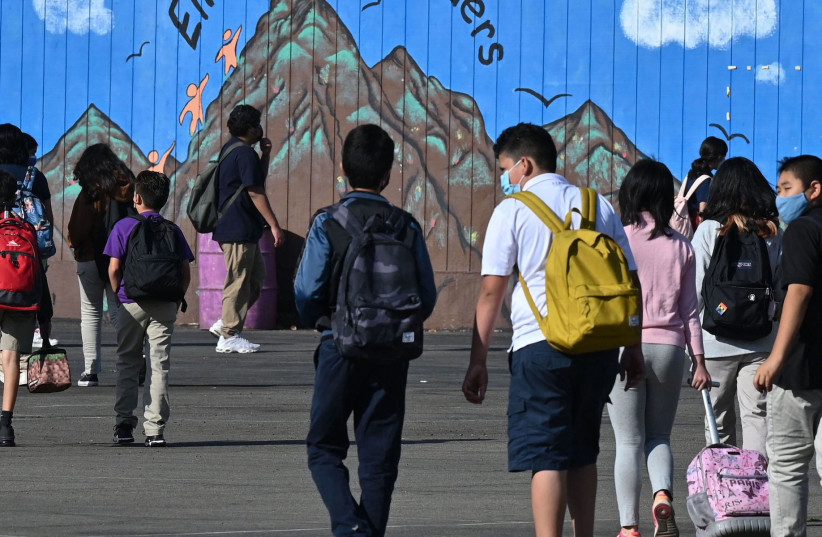Depression risk among LGBTQ+ students is considerably lower in schools where Gender-Sexuality Alliances (GSAs), similar to Gay-Straight Alliances, are active, new research shows. The research also indicated that the mental health disparities between LGBTQ+ students and heterosexual students became smaller in those schools.
The findings, published Tuesday in the peer-reviewed Journal of Clinical Child and Adolescent Psychology, analyzed nearly 1,400 boys and girls in 23 Massachusetts middle and high schools (grades 6 through 12). None of these teens were enrolled in a GSA. In all, 89% identified as straight, and 11% as LGBQT+. Roughly 7 in 10 were white.
Over two academic years — between 2016 and 2018 — researchers collected information on each participant’s age, grade, sexual orientation, self-declared gender identity, race/ethnicity, and their parents’ country of origin.
Symptoms of depression were assessed at the start and end of a school year.

The researchers found that LGBQ+ youth reported higher depressive symptoms than heterosexual students at the start of the school year. But the depression disparities between LGBQ+ students and heterosexual students became smaller at the end of the school year for students in schools whose GSAs had engaged in more advocacy over the year.
What are GSAs?
“Our findings further underscore the value of GSAs to promote the well-being of LGBQ+ students – suggesting these groups are a key school-based resource for addressing the mental health needs of this group.”
Study co-author Dr. Hirokazu Yoshikawa
About 44% of middle schools and high schools across the United States have GSAs. They are student-led school clubs that aim to provide a space to socialize, access social-emotional support from peers, and advocate for students who identify as lesbian, gay, bisexual, transgender, queer, and with other sexual orientations and gender identities (LGBTQ+). GSA advocacy activities often seek to raise awareness of LGBTQ+ issues and counteract bullying and discrimination within the school.
“Our findings further underscore the value of GSAs to promote the well-being of LGBQ+ students – suggesting these groups are a key school-based resource for addressing the mental health needs of this group,” said study co-author Dr. Hirokazu Yoshikawa, a professor at New York University.
Researchers noted that the study lacked consideration of other school policies and practices such as anti-bullying policies or staff development.
Also, they were unable to include the involvement of participants in other advocacy activities across the school. Additional research would be needed to consider whether these findings are applicable outside of Massachusetts, as GSA activity and its benefits may vary depending on broader factors, such as the socio-political context of the school’s location.
Still, Yoshikawa said that GSA advocacy includes efforts to counteract discrimination and bias in schools.
"Factors that often underlie depressive symptoms in LGBTQ+ youth – which could help to explain why its benefits appear to extend beyond those students who actively participate in these groups," Yoshikawa said.
